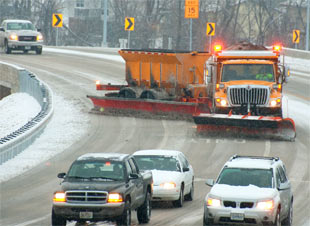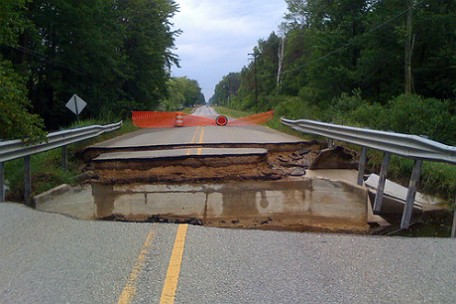Climate
Counties seek state plow hand-me-downs to battle winter weather
|
An Upper Peninsula lawmaker is reintroducing a bill to give counties an opportunity to get first bid on affordable plows that the Michigan Department of Transportation auctions.








